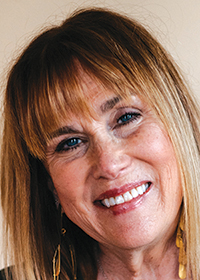What you can do about anxiety
by October 11, 2021 11:13 am 1,013 views

Is anxiety a mental illness? Or an expected, normal mental/emotional response to feared triggers, either conscious or nonconscious? There are strong voices on both sides. One side backs the biomedical model, the other arguing that anxiety is a typical struggle labeled an illness, only adding to an unjust cultural stigma.
As I was diagnosed in my mid-20s with panic disorder, I know which designation has been most helpful. One fateful morning as I was singing a solo in church, something I’d done countless times, I was violently assaulted by adrenaline rushing out of every pore. I was shaking like a leaf and had to hold onto the organ to stand. I was drenched with sweat, and the poor accompanist hid his bewilderment by smiling brightly at me as if I sounded like an esteemed soprano from the Met. The next couple of years, the attacks would come and go. And gradually, like most people with panic, I began to fear the panic itself. And that’s when I finally sought treatment, as I was exhausted with the hypervigilance of predicting panic’s appearance.
It’s been much more helpful to understand my anxiety as a response to a trigger. My metaphor has been that my unconscious mind, or “wise mind,” is launching flares up to my conscious mind. “Hey, there’s something wrong. Pay attention.” Panic attacks can stop you in your tracks and be very frightening to experience. The triggers for their onslaught might not be evident at first. But when they become apparent, then the response can make sense. Perfect sense.
The trigger could be abuse. It could be a past or present traumatic experience that you’ve discounted, denied or not recognized. It could be a harmful or painful belief you’ve been taught or come to believe. And it could be real-time trauma — like a pandemic.
Reports of anxiety have significantly increased. The numbers in the U.S. alone grew from 11% to over 40% of adults between 2019 and late 2020. Whether you’ve been a Millennial yearning for time with friends, a medical professional watching COVID sufferers die every day, or a business owner trying to make countless decisions about safety as well as profit, this is trauma.

So, what can you do?
Admit you’re nervous. Don’t expect yourself to look like you’ve got this COVID thing handled. Or if your panic isn’t all about COVID, accept that your panic … is panic. Be open about having butterflies in your gut or that you’re finding it hard to know what to do or how to plan. And you sometimes forget to breathe.
Look at your anxiety as rationally as you can. Write out possible triggers. What exists in your past that might cause a sudden rush of panic? When have you felt that fear before?
Determine the rationality of your feelings. If you’re overreacting, can you find a way to get a more reasonable perspective? Or, if your panic is rooted in the pandemic, can you identify how your panic is being fueled? Remember, what you focus on increases in strength.
Develop an action plan. Remember to self-soothe. Exercise, meditation and mindfulness practice, breathing techniques, journaling, naming your anxiety (I call my panic “Bob,” which helps me detach, stay present and breathe), real-time connection with friends, and therapy can all be helpful. Make an “if-then” plan: “If X happens, I’ll do Y.” Write as many of these as you need.
Don’t forget to laugh. Ask for hugs when you need them. And know your strengths are still your strengths.
Dr. Margaret Rutherford is a private practice psychologist in Fayetteville. The opinions expressed are those of the author.
